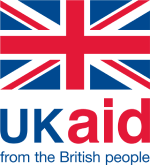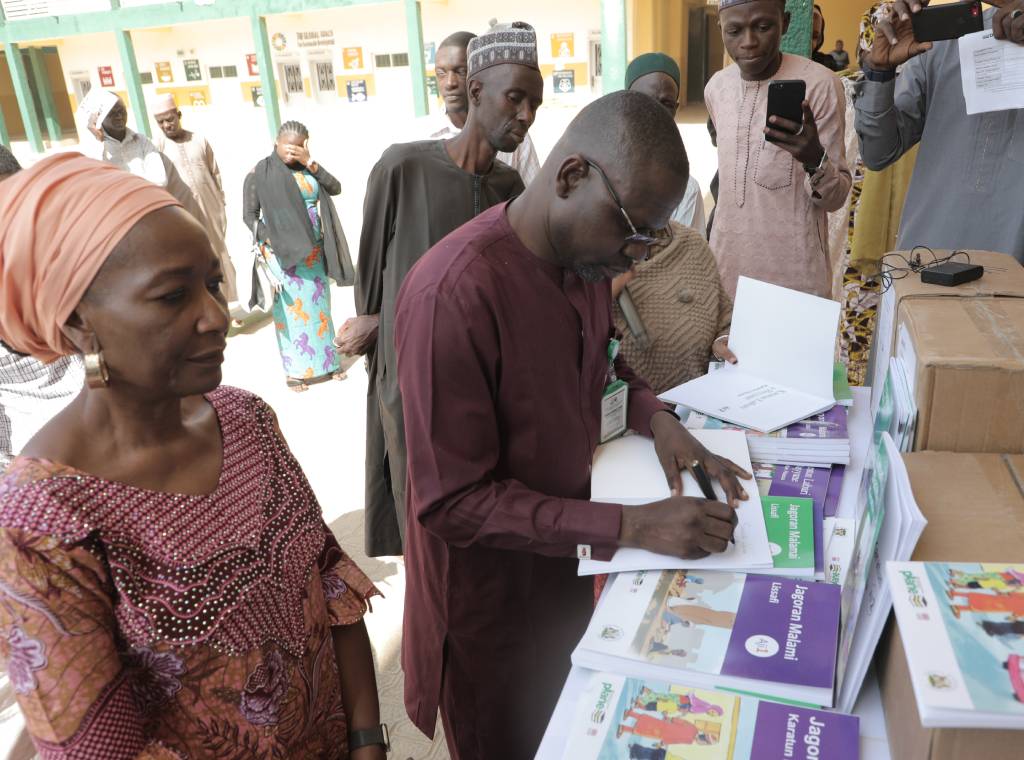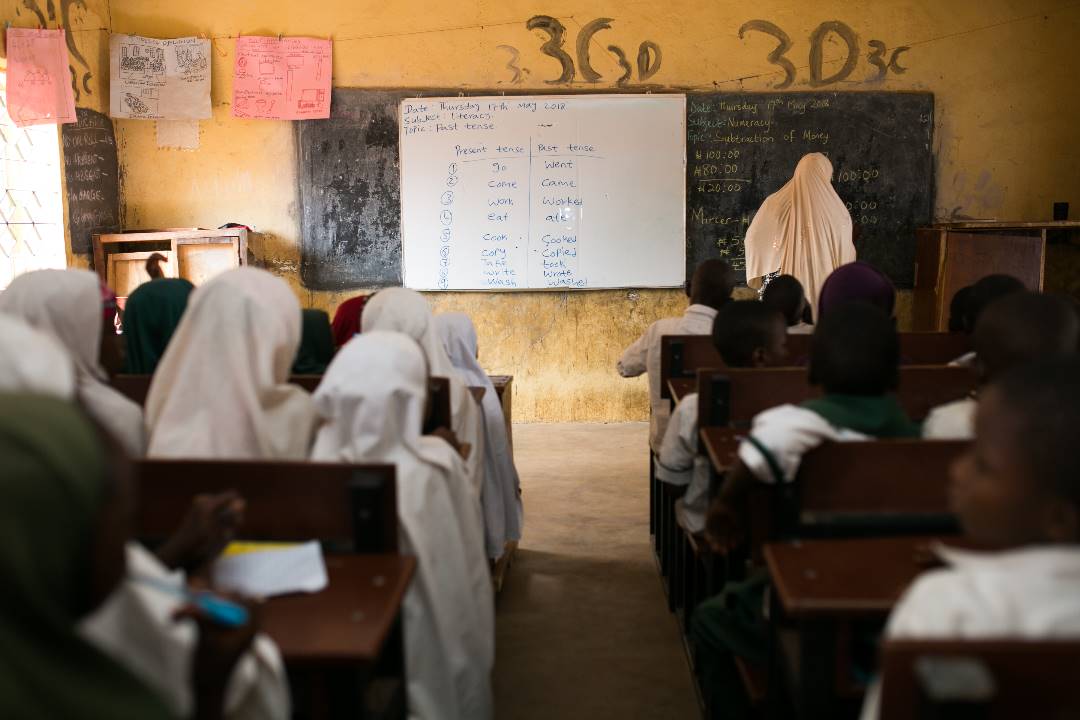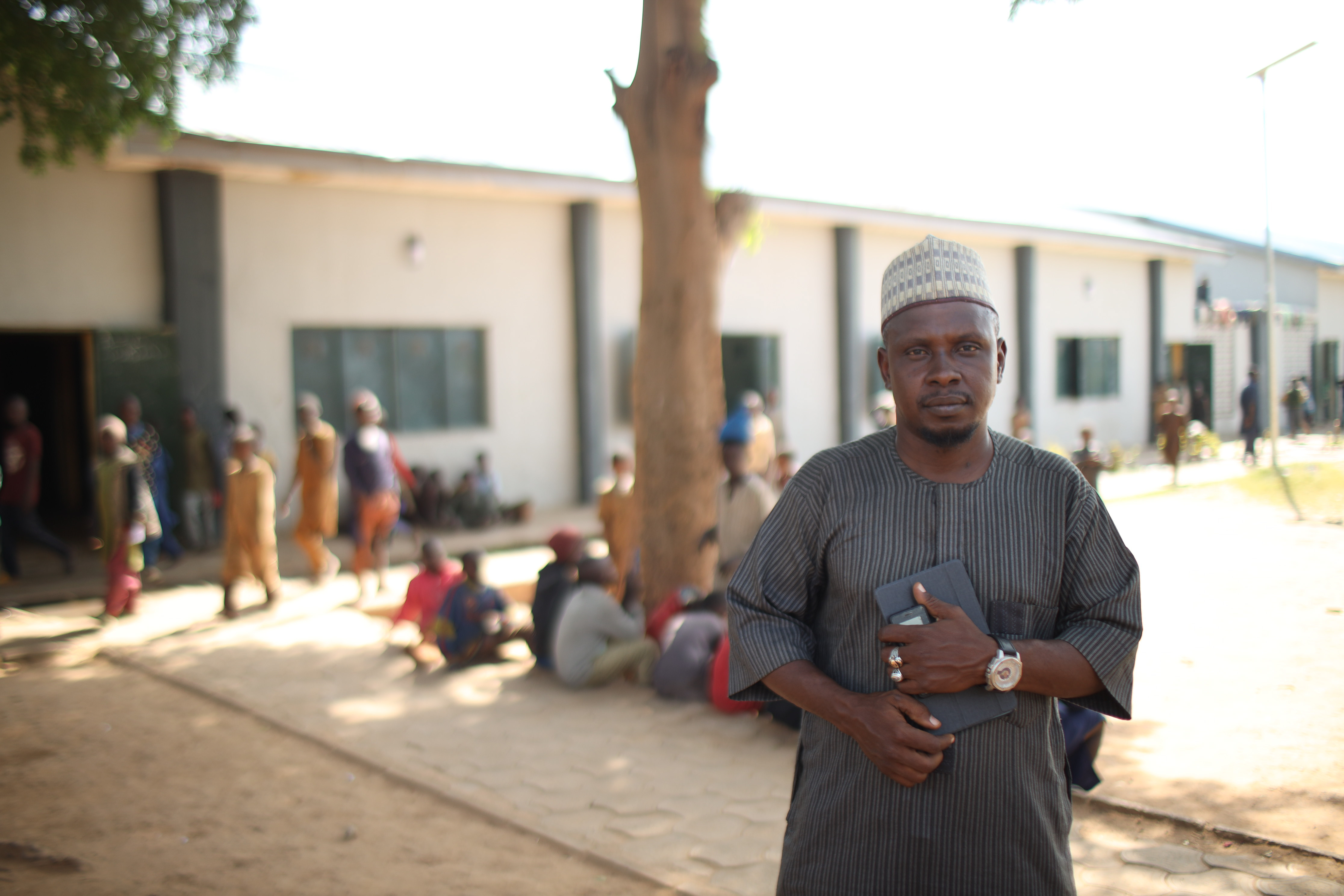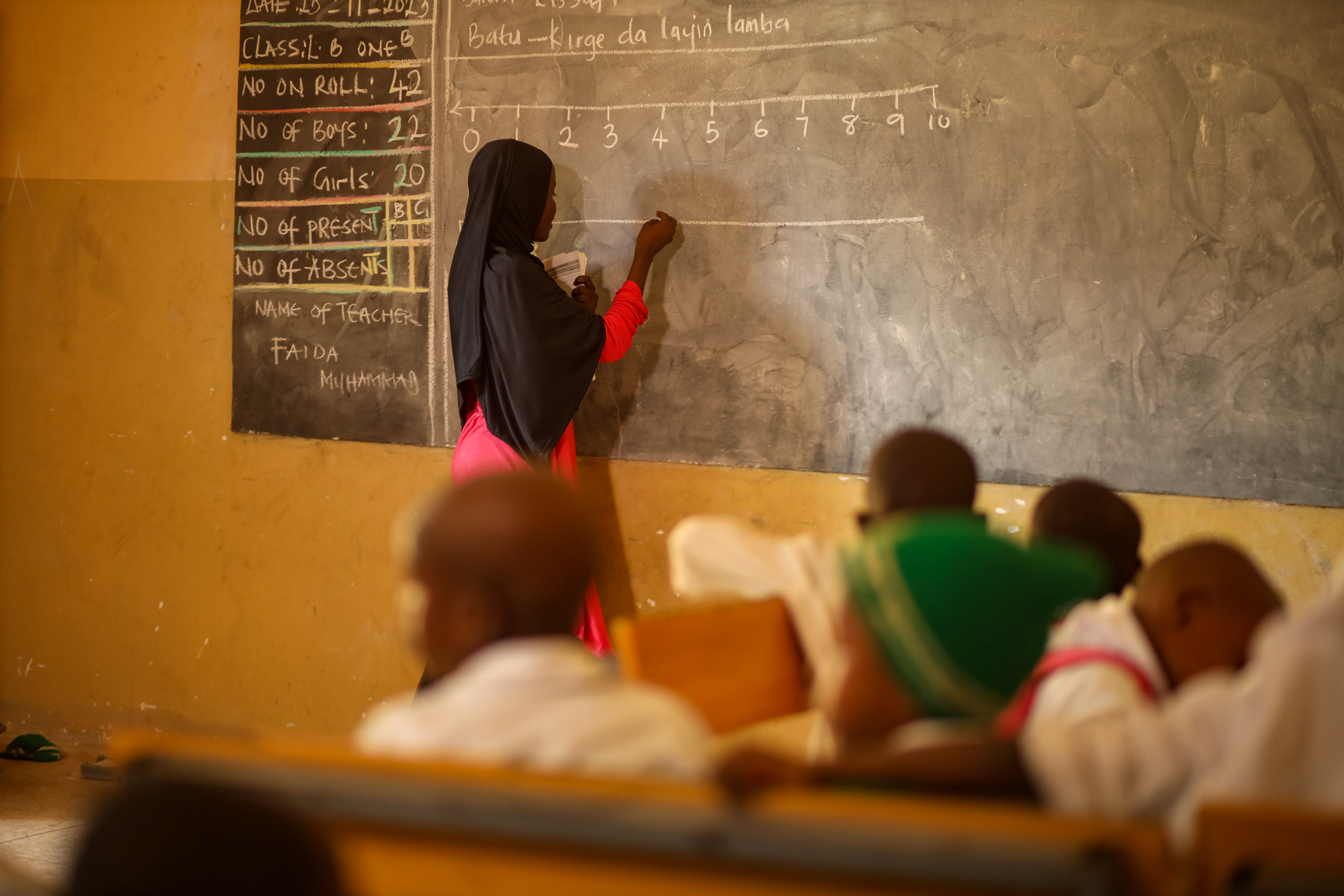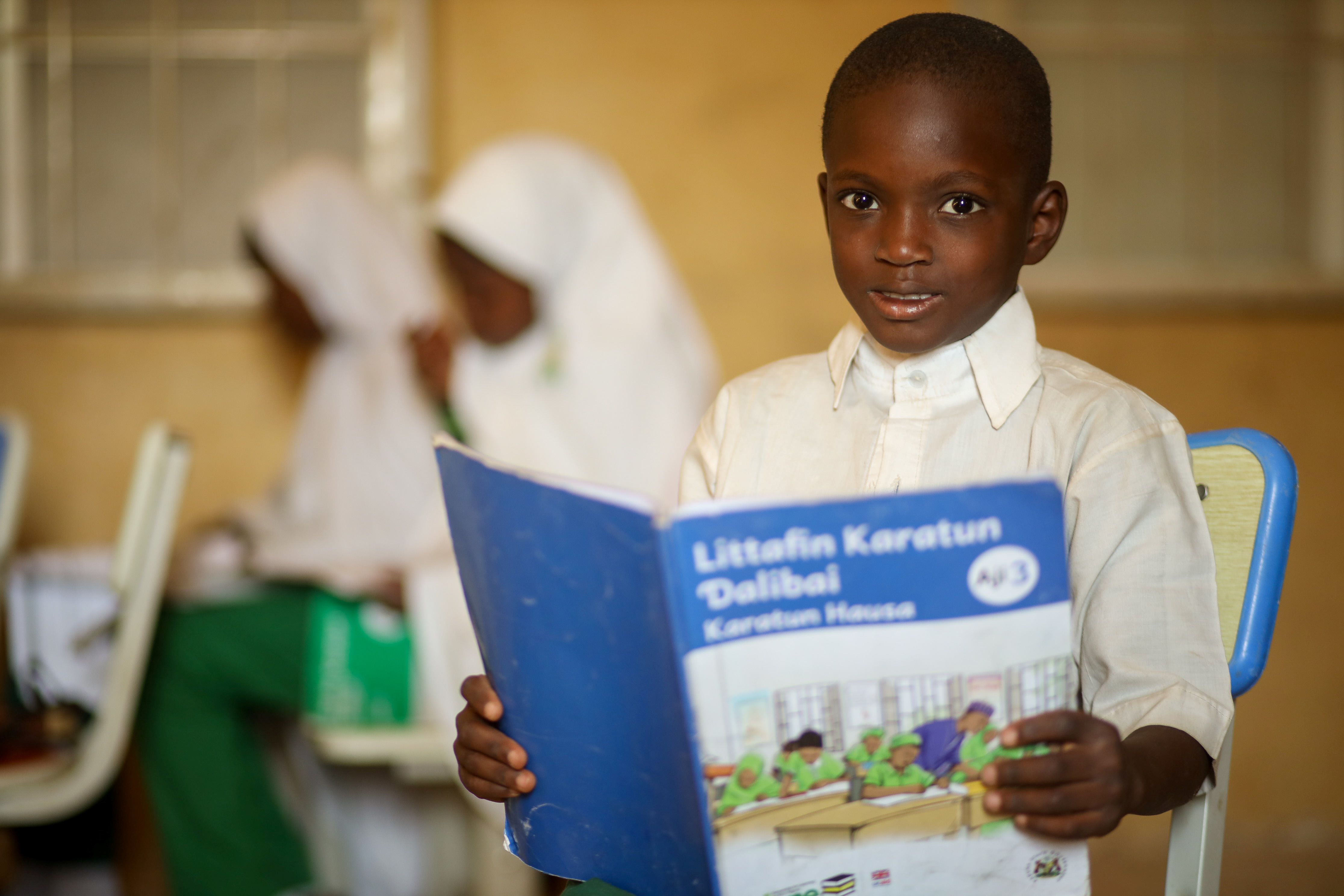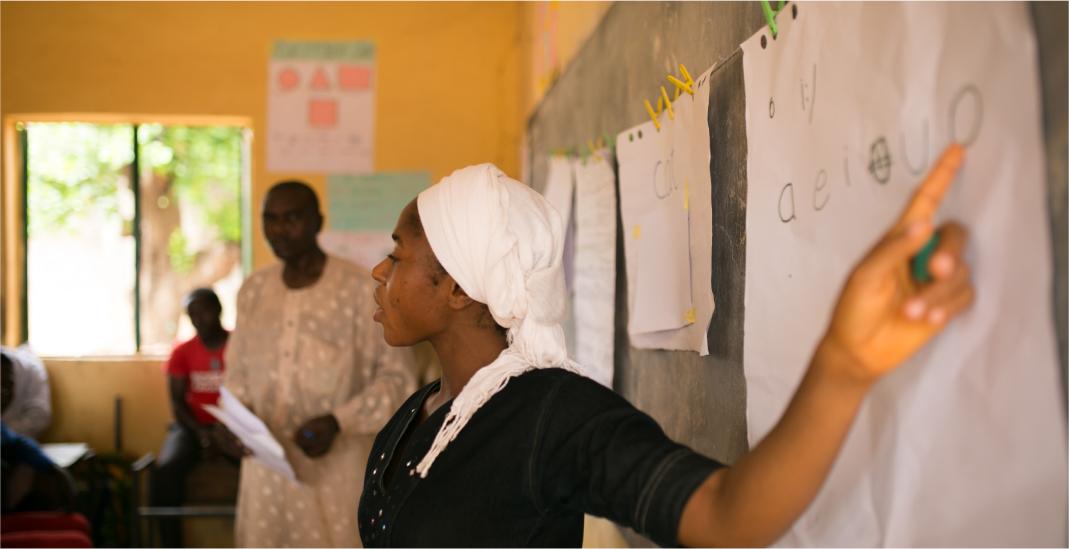
In northern Nigeria, learning achievement in the primary grades is low, with less than half of children able to read a single word. The Partnership for Learning for All in Nigeria (PLANE), a seven-year project funded by the U.K. Foreign, Commonwealth & Development Office (FCDO), seeks to improve learning outcomes for children in grades 1-6 and increase school enrollment. PLANE supports government partners at all levels to achieve this aim—with a goal of reaching 1.5 million learners. The early results show promising uptake and success.
PLANE works to improve education systems through better teaching and learning, improved governance, and increased use of data and evidence to inform policy and practice. PLANE works with teachers, government officials, education providers, civil society, students, and marginalized groups—particularly girls—across Borno, Jigawa, Kaduna, Kano, and Yobe States.
Early Results
In its first three months, PLANE has trained 8,389 teachers on foundational skills and accelerated learning. These sessions build teachers’ competence in accelerated learning, foundational literacy, and mathematics, with a focus on practical instruction on how educators can best facilitate learning. To support these newly trained teachers, the project has distributed learning materials to 2,523 schools in Jigawa, Kaduna, and Kano, including more than 16,000 teacher guides and a similar number of books for learners.
The program has also supported a review of the primary education curriculum and established 191 community learning hubs where children in underserved communities can receive a better education. To help ensure the sustainability of the initiative, it has nominated 237 local facilitators and 45 reading ambassadors to continue to engage children in these communities.
PLANE disseminated findings of studies on unregistered non-state schools and drafted education policies on private schools in Kaduna and Kano. We also helped develop criteria for establishing innovation learning hubs for non-state schools in Kaduna. And we mapped financial institutions and funding information that should help private school associations tap the finances to invest in improving their standards.
To help improve an education system that has traditionally lacked access to data and evidence, PLANE has strengthened the government’s monitoring and evaluation system by convening technical working groups, leading assessments, and developing a monitoring template for all education activities. The team is also supporting the review of the Nigeria Education Management Information System and mapping education research conducted in the past three years to inform the selection and prioritization of the learning agenda. PLANE is also providing technical support for a study on “Learning Poverty” in Kaduna.
Investing in Children
Our core work focuses on improving foundational skills in teaching and learning. Since many young learners lack access to local language textbooks, PLANE worked with the Ministry of Education and other stakeholders to develop and validate teaching and learning materials in the Hausa language. PLANE streamlined and adapted materials from previous programs based on government feedback, ultimately creating eight titles in literacy and math. Delivered last month to more than 1,900 government schools, these materials support inclusive, learner-centered instruction and are contextualized for northern Nigeria while aligning with the Nigerian National Curriculum. All materials are written in Hausa, in line with Nigeria’s National Language Policy.
PLANE is also supporting Jigawa, Kaduna, and Kano states to improve teacher performance. PLANE worked with master trainers from colleges of education and with school support officers from local government education authorities to provide hands-on training to teachers in literacy and math, reaching more than 5,000 teachers. “The training would improve the way [teachers] teach and enhance learning in school because of the quality of the training,” said Illiyasu Danjuma, the Education Secretary of Minjibir, Kano State.
PLANE is off to a good start but the work has just begun. The project will continue to engage our government partners to provide coaching and support to teachers, to assess learning and adapt instruction, to cultivate school leaders, and to galvanize communities in support of education.
Source:
PLANE Blog on DAI website
Caitlin Downs is a Technical Officer; Enene Ejembi is the PLANE Strategic Communications Lead; and Emily Koester is a Technical Director on PLANE.
